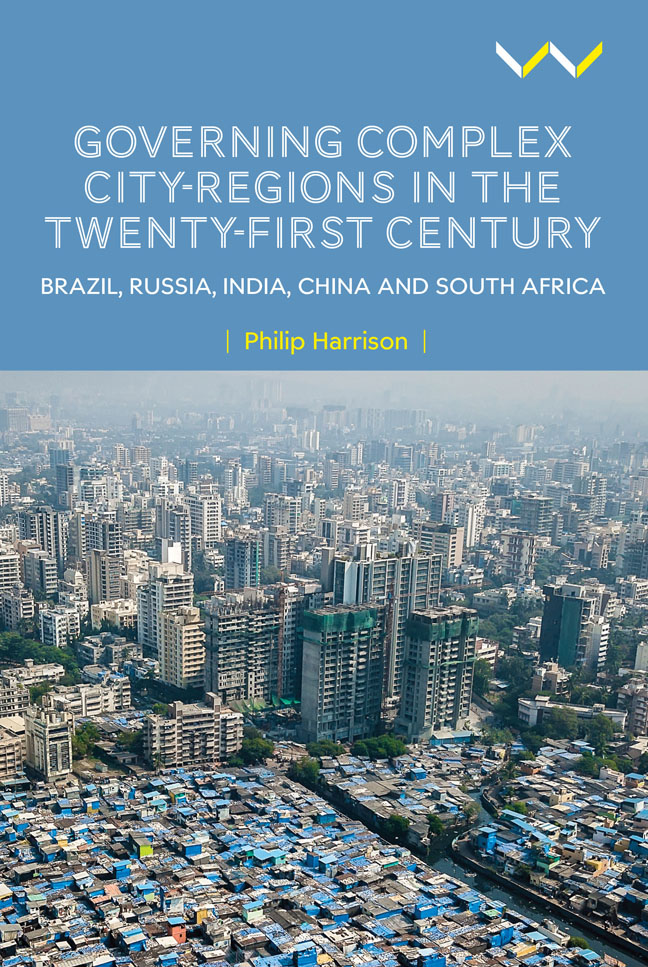 Governing Complex City-Regions in the Twenty-First Century
Governing Complex City-Regions in the Twenty-First Century Book contents
- Frontmatter
- Contents
- List of maps
- Preface
- Acknowledgements
- Acronyms
- Cartography
- Introduction: Exploring hyper-complexity
- 1 The global view: The city-region as material form, discourse and governmental practice
- 2 The governance of Brazil’s metropolitan regions
- 3 The governance of Russia’s urban agglomerations
- 4 Metropolitan and city-region governance in India
- 5 Governing the city clusters of China
- 6 City-region governance in South Africa
- 7 Concluding and comparative insights
- References
- Index
6 - City-region governance in South Africa
Published online by Cambridge University Press: 02 March 2024
- Frontmatter
- Contents
- List of maps
- Preface
- Acknowledgements
- Acronyms
- Cartography
- Introduction: Exploring hyper-complexity
- 1 The global view: The city-region as material form, discourse and governmental practice
- 2 The governance of Brazil’s metropolitan regions
- 3 The governance of Russia’s urban agglomerations
- 4 Metropolitan and city-region governance in India
- 5 Governing the city clusters of China
- 6 City-region governance in South Africa
- 7 Concluding and comparative insights
- References
- Index
Summary
Introduction
Political culture in South Africa, and more specifically within South Africa’s metropolitan heartland, Gauteng, is derived from a fractured history. For Louis Picard and Thomas Mogale (2014, 3), ‘to understand governance in South Africa today, one must look at the region’s long, mostly tortured history of governance over the past 400 years’, but South Africa’s segmented political culture is not easy to describe.
The white population was socialised into a racially prescribed democracy but was divided in their political inheritance into two major threads. British settlers who arrived from the early nineteenth century brought the Westminster system of democracy with its liberal trappings and adapted it to a racial hierarchy. It was a conservative liberalism willing, at best, to support a very gradual process of de-racialisation. The Afrikaner population, mainly descendants of European settlers from the seventeenth century onwards (especially Dutch, German and French), leaned towards nationalism and racial prescription driven by resentment of British domination and fear of black majority rule, but were also informed by nationalist movements in Europe from the nineteenth century. Over time, there was a crossover in political cultures, and by the 1980s, these historical differences were not strongly evident.
For the black majority, political socialisation happened within a mainly oppositional context, but there was considerable variation. The muted tradition of British liberalism in the Cape produced a liberal strand of oppositional thought, especially within a mission-educated generation, but there was also ongoing communitarianism in parts of the country where forms of traditional leadership persisted, and there was the rise of more radical forms of opposition such as African nationalism and workerism (including Marxism). It was a complex mix, feeding into different modes of opposition with different inclinations towards democratic values, for example.
By the 1980s, the liberation struggle had largely cohered within the exiled African National Congress (ANC), itself a broad church, which was in an alliance with civic movements leading a broad-based internal uprising against the apartheid regime (Levy et al. 2015). It was not a straightforward struggle; Henning Melber (2002, 164) writes of ‘the struggles of the national liberation movement in interaction with the international system represented by a variety of competing actors under the polarised conditions of superpower rivalries during the 1970s and 80s’. It was a struggle involving armed resistance, international diplomacy, exile politics and internal civic mobilisation.
- Type
- Chapter
- Information
- Governing Complex City-Regions in the Twenty-First CenturyBrazil, Russia, India, China, and South Africa, pp. 145 - 168Publisher: Wits University PressPrint publication year: 2023


